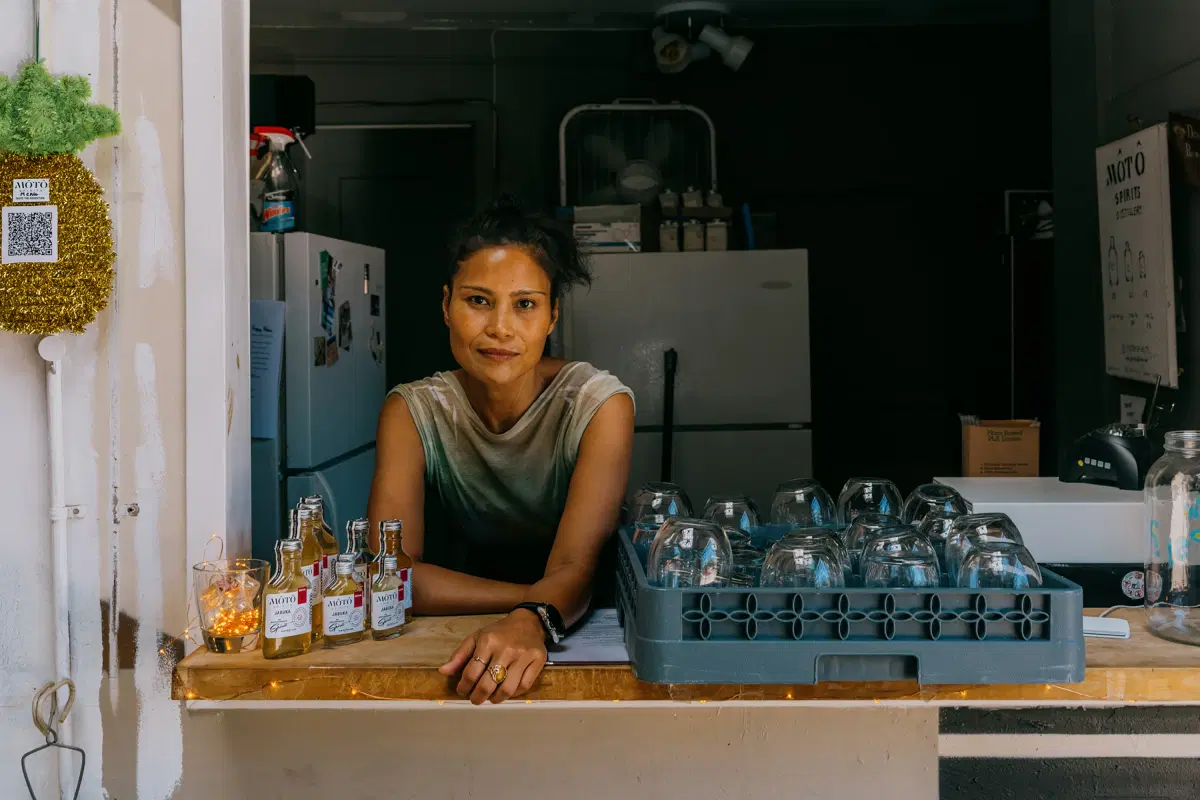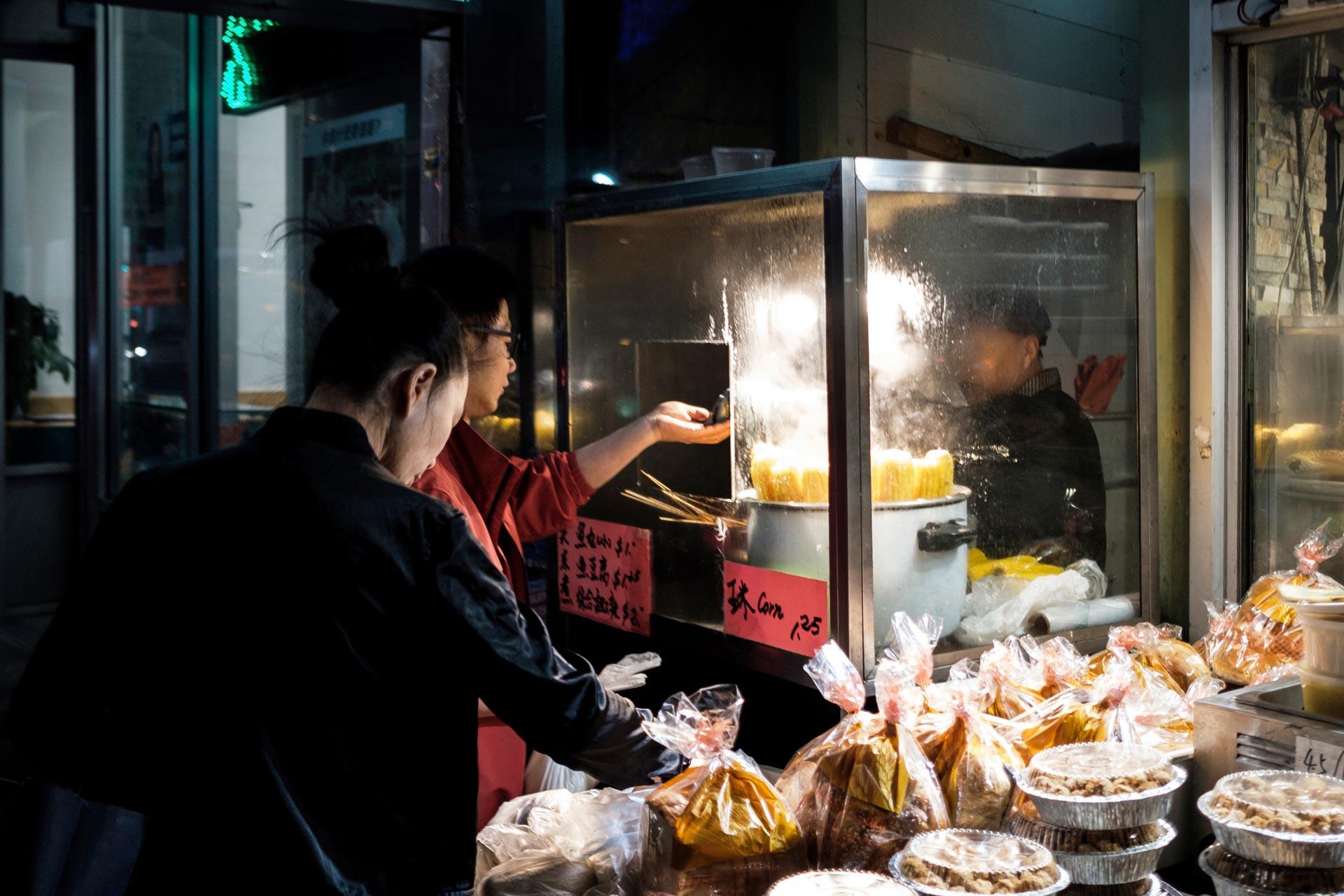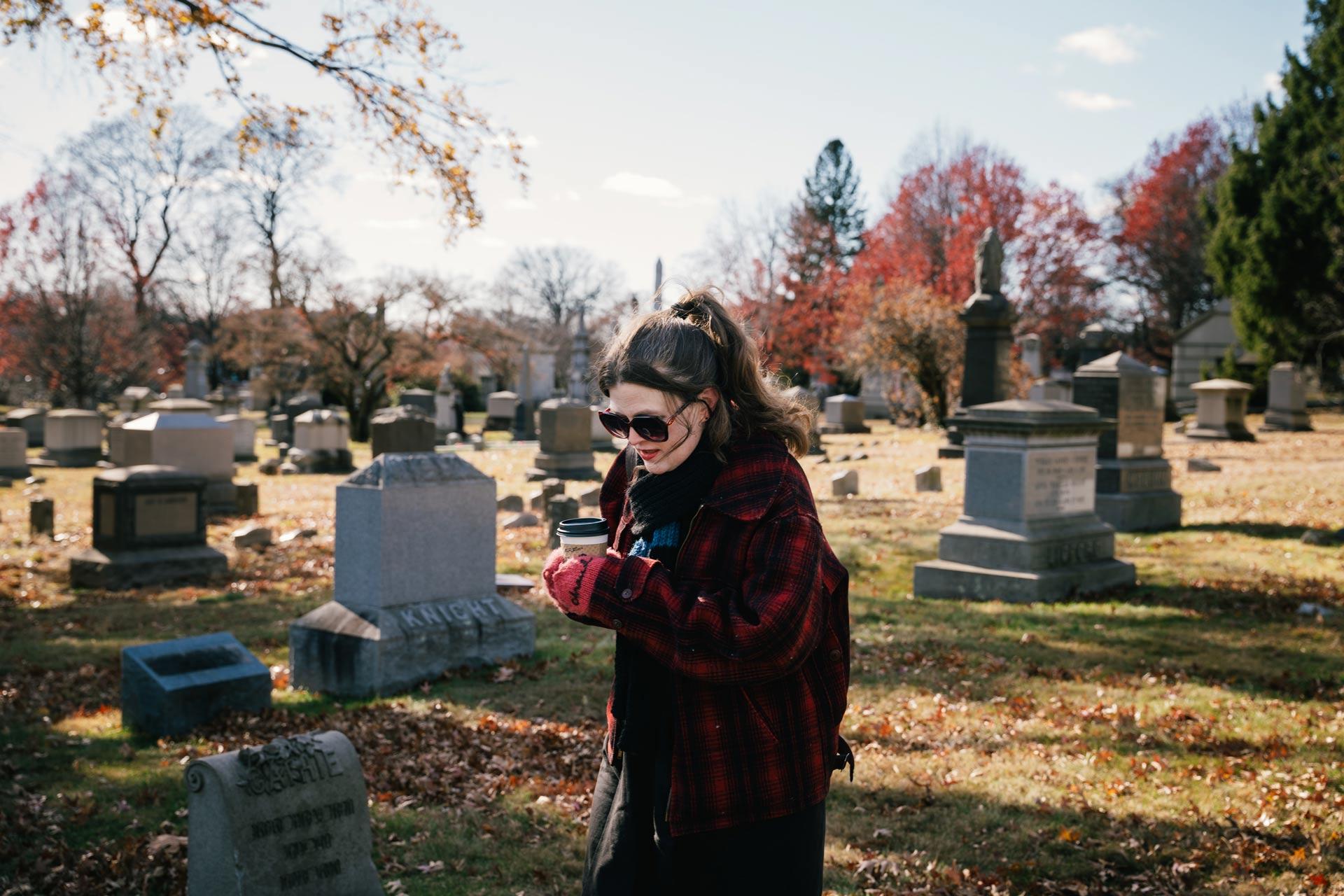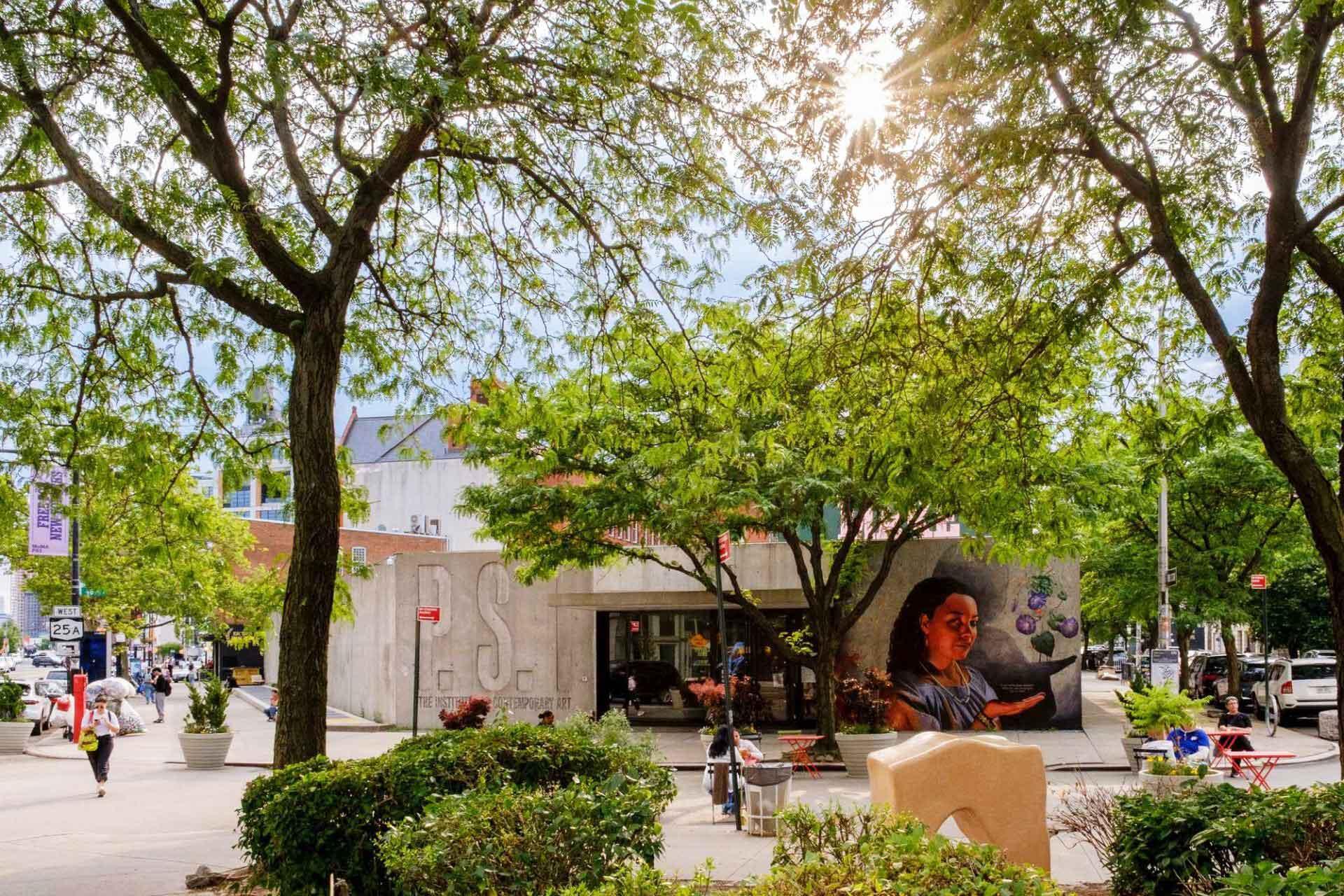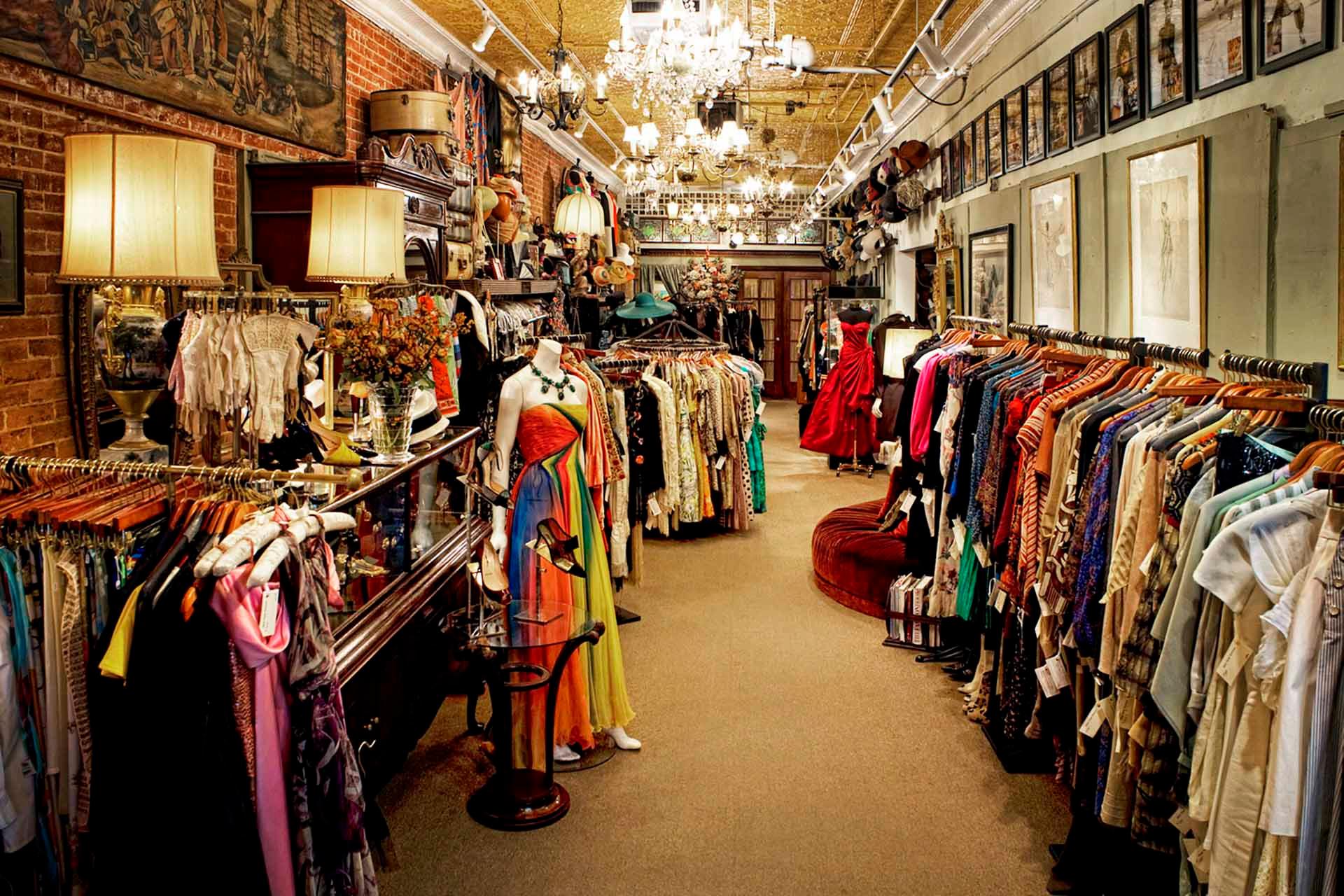What We’ve Built is a series of portraits and conversations with AAPI business owners and leaders who’ve created space for their community in their neighborhoods and beyond.
There’s a stereotype of Brooklyn cool, especially when it comes to someone who runs a so-called artisanal enterprise like a craft distillery. It’s easy to conjure an image of a young upstart sporting a sleeve of tattoos, a beard, maybe a man bun.
As co-founder and head distiller at Brooklyn-based Moto Spirits, Marie Estrada would agree with you. However, she’s far from that image herself—and she’s proud of that.

Estrada describes herself as a “little brown person” who was born in the Philippines and grew up in LA. Her sisters would say she’s “a frat boy and an old man wrapped up,” given her potty mouth and fondness for golf. To Hagai Yardeny, her business partner, Estrada is not only a motorcycle aficionado and fellow rider, but also the one whose palate he can count on to unpack the subtleties of different spirits. She is, after all, a certified sommelier (a venture she chased after leaving her old job in book publishing).
By now it’s clear that Estrada doesn’t shy away from being a jill-of-all-trades. And Moto takes after its owner. Since opening in 2016, the Bushwick space has not only been supplying small-batch rice-based whiskeys and locally sourced spirits to area businesses, it’s also become a supportive creative community space.
During the early Covid days, Estrada and her team delivered supplies to health care centers and distilled sanitizer in their location. These days they regularly host events, including Sofar Sounds concerts and comedy shows, and drink-and-draw nights. The latest addition: a language exchange meet-up (Estrada picked up a bit of Mandarin at one.) Whatever language you speak, Moto wants you to come as you are. The only rule? “Don’t be an asshole,” says Estrada, quoting their motto.
We talked with Estrada about building community, breaking barriers and the one thing she hopes she’ll eventually get to stop doing.
Can you tell me about where you currently live, and what you love most about it?
Marie Estrada: I’ve been in Williamsburg, Brooklyn, since 2008. My neighbors and I are all very close. My building is really special. It’s a group of artists and creatives, including photographers and filmmakers. It’s a little nuts: Bill Murray once lived across from me.

You previously worked in book publishing. What inspired you to become a sommelier?
ME: I was at Harper Collins initially, handling books in every genre. That allowed me to figure out what I really loved. A lot of the books had to do with food and culture, things that have always been fascinating to me—I studied English and anthropology at Columbia. I discovered I wanted to learn everything about wine.
And here you are.
ME: I know! My mom would say, “We gave you this Ivy League education, and now you're grinding rice?” [Laughs] But yeah, if I’m happy, she’s OK.

Tell me more about your work with Moto.
ME: It’s probably one of the hardest things I've ever done. It’s full of bureaucracy, from paperwork to inventory. In addition to producing alcohol, there’s also our event space where we host live events, tours and tastings. And when there’s something wrong with our pump, I’m not afraid to fix it. My stepfather was a hydraulics engineer and he used to have motorcycles, so I’m pretty comfortable handling machinery.
How would you describe Moto’s clientele and the greater community you're a part of?
ME: Our community is artists, musicians, dog owners, even delivery people who are coming in when they’re done with their day. There’s also restaurant tours and bar owners and a huge motorcycle community that comes in—we have six motorcycles in our space, two of which are mine. We’ve partnered with a lot of music organizations, like Sofar Sounds. We also have comedians who come to do shows and we’ve had multiple art shows. The reason we partnered with all these people initially was because no one knew us.
Sounds like the motivation was connecting with folks and getting your name out there, but you’ve also created an inclusive community where people can drink, meet others and share music.
ME: Absolutely. One of my favorite things that we started is a language exchange. You can come and buy a drink, and if you're learning a language, meet people who speak it.

I love that idea. Can you tell me more about the motorcycles?
ME: This one I can attribute to my business partner, Hagai. It started with a motorcycle trip through Vietnam with his girlfriend. He fell in love with the hospitality there; everyone welcomed them into their homes. The name “MÔTÔ” isn’t just about the motorcycle adventures we take, but the little circumflexes over the O’s represent the hospitality that comes with riding. It’s like a tented space.
That’s really sweet, and leads me to my next question. How does the term “Asian American” or “AAPI” resonate with you? How do you think it affects your work?
ME: I am so proud to be a part of the Asian American Pacific Islander community. But at the same time, we are still considered “the other” and have to justify why we’re successful or hardworking. I wish at some point, I wouldn’t have to say, “I’m a woman-owned business” or “I’m an AAPI-owned business.” I wish we didn’t have to focus on that, but we’re not there yet. I mean, I only know how to be me and who I’ve always been.
Why do you think your work is important to the local small-business community and the local Asian American community?
ME: I think it’s the fact that I represent something as a minority, not just in the world, but in this industry. It’s nice to be able to see me if you’re Asian or someone who looks like me. I’m a woman who’s educated and is still hustling and struggling, but capable of making a business. It’s important to me that I can show that I can succeed or f— up. [Laughs]
Or say you at least tried.
ME: [Laughs] I’ve failed too. I’m not a model minority. Absolutely not.
As part of What We've Built, photographer Tommy Kha asked his subjects to take their own photos, centering on the theme of community. Each subject was given a disposable camera and a list of prompts to capture a few moments in their days. This is what Marie saw.

As Marie Estrada, as a business owner, as a woman in this industry, as an Asian American, what are you most proud of?
ME: I lost my father when I was young, but I’m so lucky I had people who were nurturing. Then I was able to fly away to New York to go to school, which isn’t something you necessarily do in the Asian community. My mom was bribing me to stay in California. I also moved away from what I studied, but felt confident enough that I could try something new. I’m most proud that I’m confident in what I can do.
Alexandra Lim-Chua Wee is a writer based in Sunset Park, Brooklyn. When she isn’t writing about community and culture in NYC, she continues the search for kolo mee as good as her dad’s and tocilog as good as her mom’s. Find her at alexandralcw.com.

